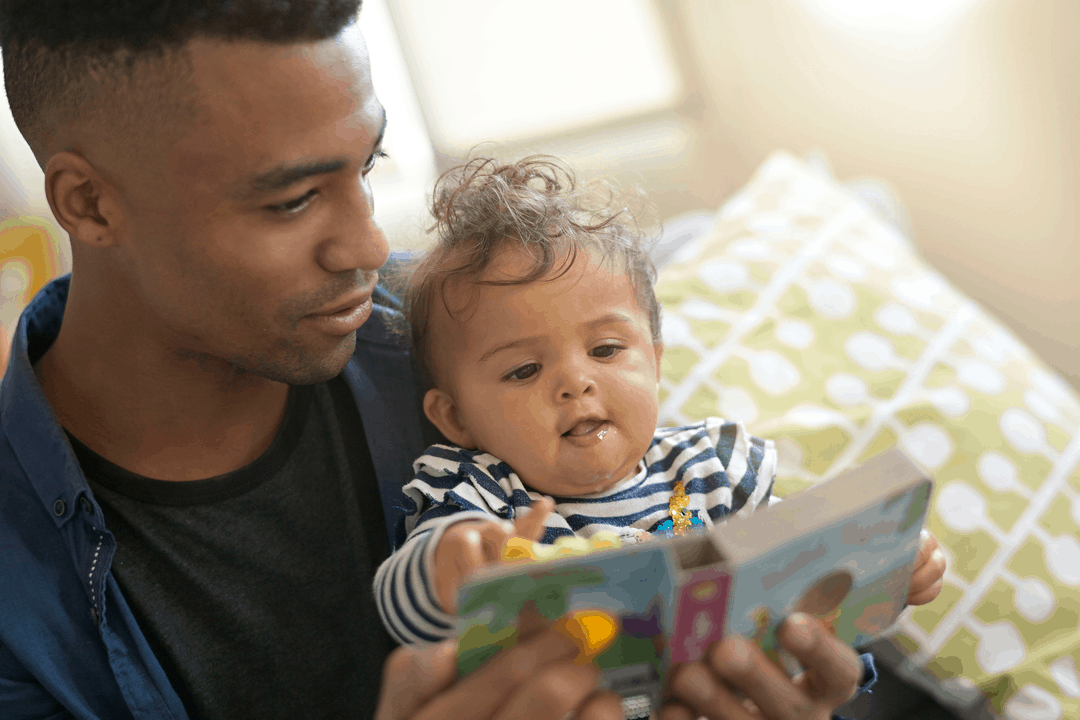Some people are born with a love for reading. You know if you’re one of them! My sister is. Even as a child, she often had her head buried in a book. I have snapshots of her peering over the top of paperbacks and giving me eye rolls to prove it. For me, reading has always been more of a discipline than a passion; for necessity rather than pleasure. I prefer to be off doing something. No offense to you book worms out there!
Nevertheless, all that changed when I started working for Great Kids®. My position requires that I spend hours poring over research or reading books from the field. It was during one of these reading sessions that I came across a powerful phrase that I’ve been musing over for the past month. The phrase that got my attention was…
…history is not your destiny.4
When I first read the phrase, I immediately thought about the resilient families that I’d partnered with in my home visiting days who overcame significant challenges such as adverse childhood experiences, substance use disorders, or life after incarceration. I also thought about friends and co-workers who had refused to let challenges in their past define who they are today. These people are living examples that history doesn’t have to equal destiny and that past doesn’t have to dictate the future.
As a home visitor, one of the modules I always enjoyed sharing with families was Learning About Family Values and Strengths from the Growing Great Families® Manual. This module often sparked rich conversation as we dug into the values that were important to them and their hopes for the future. Sometimes, these conversations also stirred up feelings of loss as parents reflected on missed opportunities in their own childhood while they voiced their desire to do better for their child.
I recently learned that these kinds of conversations, where parents reflect on both the positive and negative aspects of their childhood to make sense of their past, can actually support them in strengthening their attachment relationship with their child moving forward.4 As parents talk about their early life experiences, they can develop a narrative that helps them understand where they’ve come from and where they want to go.4
One of the best ways to support families as they make sense of their story is to offer them the gifts of empathy and intentional listening as you lean into the prompts provided for you in the conversation guide. Doing this can create the space parents need to begin to make sense of their own history and interrupt negative intergenerational cycles.2,4 Focusing on strengths and believing in families also empowers them to step into a brighter future.2 If a family needs more support than you can offer within your role, reach out to your supervisor to problem-solve other resources that might be appropriate for the family.
Of course, it’s not just parents who can benefit from understanding their past as they navigate the future. The fact is, we all bring our history into our relationships with those around us, including our clients, co-workers, friends, and loved ones. According to researchers, our previous experiences form the way our brain interprets and understands our life today.3 We see the world through our unique lens, and while we can’t physically go back and change what happened in our past, we CAN change the way we think about it and make positive choices moving forward.1,3,4
So, whether you’re a home visitor who is perhaps trying to make sense of your own childhood at the same time as supporting families, a supervisor who maybe wants to break free from old ways of doing things, or a writer that never really liked reading all that much…your history does not have to be your destiny!
How can you support families to step into their future?
References
1. Center on the Developing Child Harvard University. (n.d.). ACEs and toxic stress: Frequently asked questions. https://developingchild.harvard.edu/resources/aces-and-toxic-stress-frequently-asked-questions/
2. Miller, W. R., & Rollnick, S. (2013). Motivational interviewing: Helping people change (3rd edition). The Guildford Press.
3. Perry, B. D., & Winfrey, O. (2021). What happened to you? Conversations on trauma, resilience, and healing. Flatiron Books.
4. Siegel, D. J., & Bryson, T. P. (2021). The power of showing up. Ballantine Books.

Melissa Weekes is a Product Development Specialist. Prior to joining Great Kids® in 2018, she worked as a home visitor with Public Health Services where she used the Growing Great Kids® Curriculum. Melissa lives in Nova Scotia, Canada, with her husband and enjoys any opportunity to be creative!


